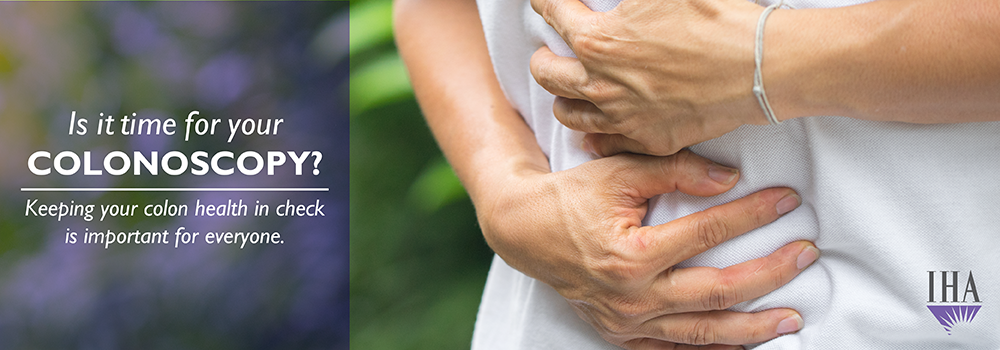
KEEPING YOUR COLON HEALTH IN CHECK IS IMPORTANT FOR EVERYONE
Did you know that nearly 100,000 people are diagnosed with Colon Cancer and 40,000 with rectal cancer each year? In other words, one in 24 men and one in 22 women will develop colon or rectal cancer in their lifetimes. March is Colon Cancer Awareness Month, a time to evaluate the state of your colon health and learn how to monitor colorectal health going forward. Stay in touch with your colon!
COLONOSCOPY 101
Unlike other cancers screening tools, colonoscopy is unique in that it can both diagnose and help prevent colorectal cancer by removing polyps before they progress to cancer.
WHO SHOULD GET A COLONOSCOPY?
Common misconceptions are that you only need a colonoscopy if you have a family history of colorectal cancer or polyps. However, 80-90% new colorectal cancer cases have no family history – this means that the vast majority of new cases will be the first person in their family to be diagnosed.
Others think that if they have no symptoms, they can’t possibly have colorectal cancer. But by the time patients develop symptoms of weight loss, abdominal pain or changes to their bowel habits, the cancer has often already progressed to a very late stage.
This is why screening is so important. We want to find polyps and early cancer that are easily treated.
WHEN SHOULD I GET MY FIRST COLONOSCOPY?
Every adult should undergo their first screening by the age of 50. Some patients should start earlier, depending on other factors. It is best to talk to your doctor about when you should start screening.
Some people delay or avoid screening because they are afraid of the test. A focus of Colon Cancer Awareness Month is to spread the word about colonoscopy – the test is not painful and is very safe.
SCHEDULE YOUR COLONOSCOPY
It’s easy to schedule your colonoscopy with IHA – simply visit our online appointment tool to request your colonoscopy appointment. Our team will verify that you’re eligible for colonoscopy screening with your primary care provider and will confirm your appointment.
